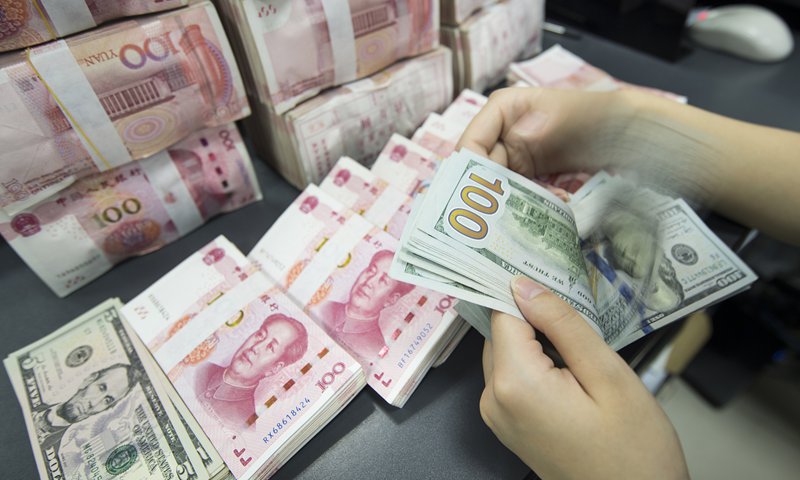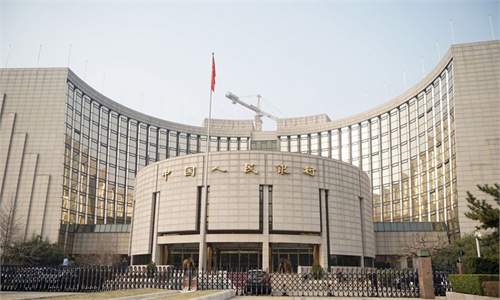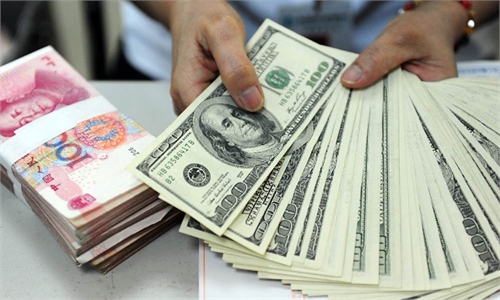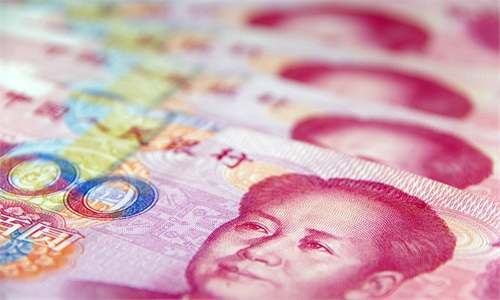Chinese yuan’s role as global economic stabilizer highlighted amid irresponsible Fed rate policies
Yuan’s stabilizing role highlighted by volatile policies

RMB
The Jackson Hole central banking conference in the US is likely to be another venue to witness the economically unsustainable international currency system centered on the US dollar, Chinese analysts noted on Friday, as the market kept a close eye on the meeting to gauge upcoming Fed decisions while countries around the world increasingly look for substitutes for the failing system.
Whatever the results of the meeting, US monetary policy moves implemented in the remaining months of 2022 will largely be unable to boost the US real economy or steer the country away from a looming economic crisis, Chinese analysts pointed out, while other countries will increasingly look for a solution from China, which is increasingly similar to the US in terms of economic size but offers more stability in its relations with the world.
Meeting won't sway China's supportive policy
Investors will be keen on hearing and gauging how the Fed is going to deal with record high inflation in the US with more interest rate hikes while not deflating the US economy, which many believe is on the verge of a recession, Chinese analysts said.
However, the Fed's decisions will have little impact on China's monetary policy, despite the recent formation of a strong dollar trend that is pushing the yuan down a weakening channel.
The euro fell to a 20-year low against the US dollar this week and the yuan weakened to its lowest level in two years.
Lian Ping, head of the Zhixin Investment Research Institute, told the Global Times that the People's Bank of China (PBC) recently made clear its determination to pursue a pro-growth track when it lowered the loan prime rate, the market-based benchmark lending rate, on Monday.
Lian said that US rate hikes have sent the dollar on an upward track, which is projected to peak in the early fourth quarter, and the yuan will remain under depreciation pressure from the strengthening dollar, probably briefly weakening beyond 7 yuan per dollar during the second half of the year.
However, the yuan will be the most stable major currency amid the dollar's general strengthening trend, underpinned by China's solid economic fundamentals, its sizable international payments surplus, and its strong trade and investment performances.
With its perceived stability, the yuan will not fluctuate wildly and will likely move in the 1:6-7 range against the US dollar for most of the rest of the year, Lian said.
Since the start of the year, under the influence of multiple factors such as the Fed's interest rate hikes and geopolitical conflicts, the main trend in global currency markets has been the strengthening of the US dollar and the weakening of major non-US currencies.
Against this background, the yuan has depreciated against the dollar, but the Chinese currency has been relatively strong compared with other currencies, according to the Economic Daily on Friday.
In the first half of the year, the yuan depreciated by 5 percent against US dollar, but it appreciated against the euro by 3 percent, the pound by 5.8 percent, and the yen by 12.8 percent.
From 2005, when the yuan's exchange rate formation mechanism was reformed, through this June, the yuan's exchange rate against the US dollar had appreciated by 23.3 percent, with an appreciation of 42.9 percent against the euro and 48.7 percent against the yen, the newspaper reported.
The State Administration of Foreign Exchange (SAFE) said on Thursday that China's foreign exchange market is generally stable, with banks reporting a net foreign exchange settlement surplus in August.
China's merchandise trade maintained a relatively high surplus, and its actual use of foreign direct investment continued to grow, the SAFE said, adding that the overall net purchase of Chinese securities by foreign investors in August reflected the long-term investment value of yuan-denominated assets.
US digs grave for dollar system
The US Federal Reserve's sizable interest rate hikes have forced many countries to cope by announcing their own rate hikes amid a wave of global inflation. Many countries also face rising financial risks as hot money flows outs and back to the US.
However, such hikes won't be a cure for the woes of the US economy, even if it means that the US can reap benefits from other countries, Chinese analysts said, noting that the US' abuse of the dollar's dominance is causing an increasing reaction.
Li Xunlei, chief economist at Zhongtai Securities, told the Global Times on Friday that it's quite probable the US is sliding into a recession, no matter what pace Fed officials follow in their rate decisions.
"It is quite certain that a contraction will be seen in the second half of the year, despite signs that US inflation may have reached a plateau in August," Li said. "The taming of US inflation will be a very slow process, with the issues of food prices, oil prices and the pandemic prevailing."
Mei Xinyu, a research fellow with the Chinese Academy of International Trade and Economic Cooperation under the Ministry of Commerce, told the Global Times that whatever policy the Fed chooses, it's unlikely to bolster the US' real economy. Looking at the bigger picture, the dollar-based international currency system is becoming increasingly inappropriate and flawed.
The dollar's status as the world's currency was based on the US' once-paramount economic productivity. Yet, Mei pointed out that the Fed's quantitative easing policy in recent years has fundamentally decimated the US manufacturing sector's competitiveness, and it thus undercut the dollar system.
The US' wanton sanctions against other countries have accelerated the fall of the US dollar-based system, Mei said.
The sudden tightening after years of easing, along with the large role of the virtual economy in the US economy, is very likely to cause a financial crisis, Mei said.
The world would have no choice in the face of the US' wanton irresponsibility were there another similar economy, Mei said, but luckily this is not the case today.
Steven Barnett, senior resident representative of IMF in China, said on Thursday that China is already the world's largest economy in terms of purchasing power parity, according to domestic news portal thepaper.cn.
Globally, countries are increasingly looking for alternatives to the dollar.
BRICS International Forum President Purnima Anand said on Thursday that Russia and India don't need the US dollar in trade, having turned to national currencies to conduct mutual settlements, according to Russian news outlet rt.com.
"We have implemented the mechanism of mutual settlements in rubles and rupees, and there is no need for our countries to use the dollar in mutual settlements. A similar mechanism of mutual settlements in rubles and yuan is being developed by China," Anand said.
The share of the US dollar assets in the foreign exchange reserves of global central banks, a sign of the dollar's supremacy, dropped to 59 percent in the fourth quarter of 2020 - a 25-year low, the IMF reported last May.
The share further dropped to 58.88 percent in the first quarter of 2022, IMF data showed.




